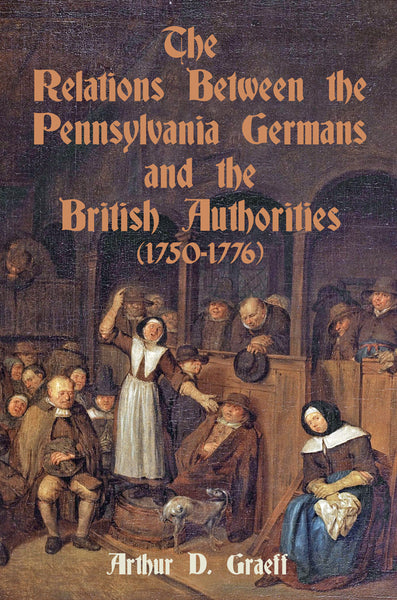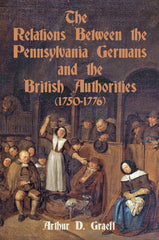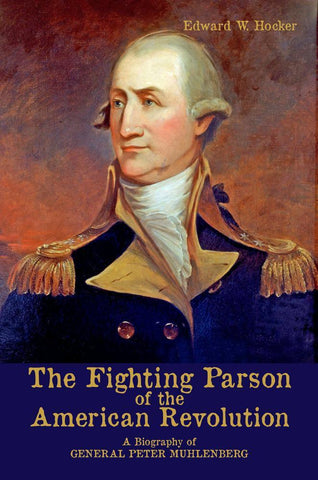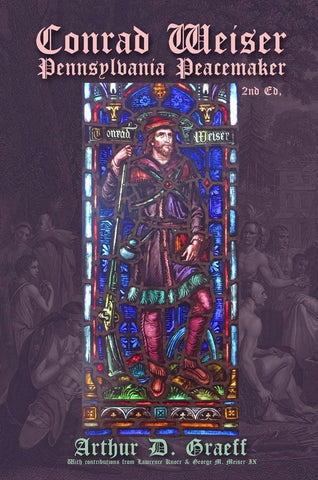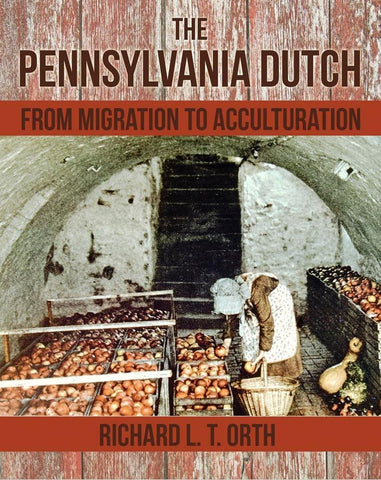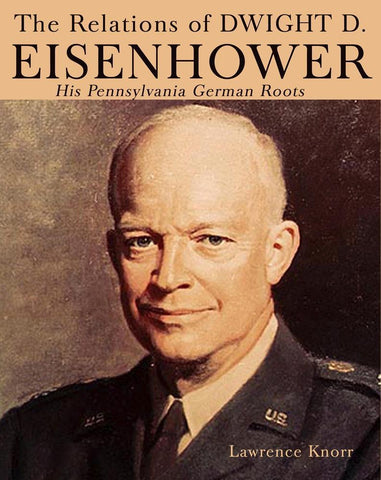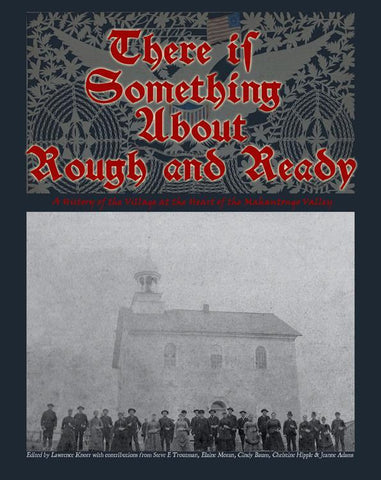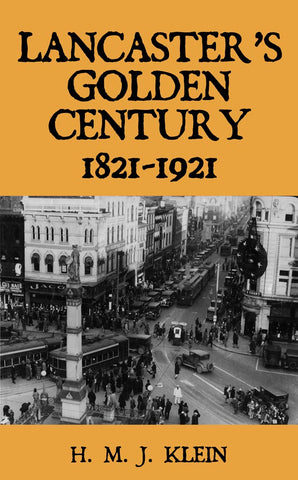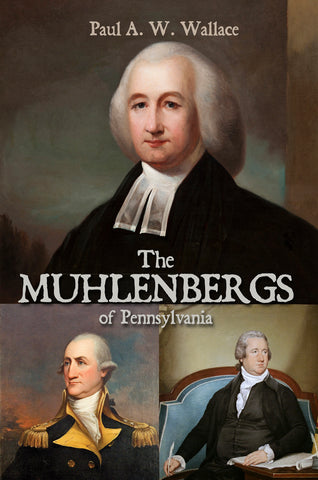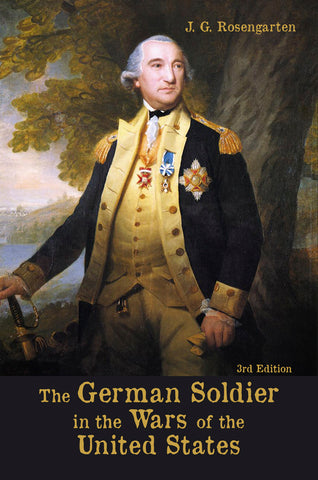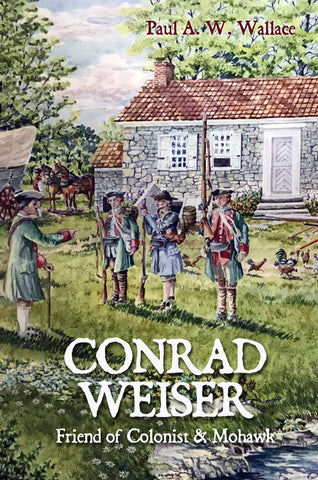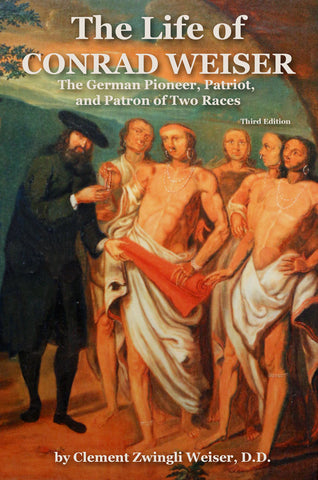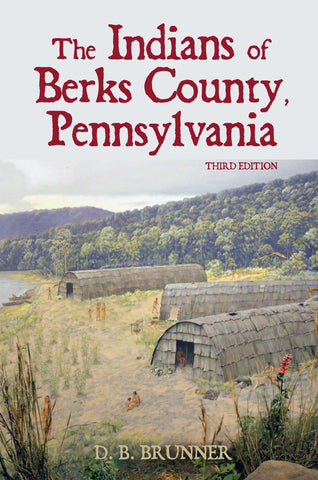The Relations Between the Pennsylvania Germans and the British Authorities, 1750-1776
Arthur D Graeff
Non-Fiction
2nd Edition This newly revised edition of Arthur Graeff’s doctoral dissertation remains one of the best summaries of the contributions and attitudes of the Pennsylvania Germans during the colonial period, a formative time in...
In Stock
9781620063941
2nd Edition
This newly revised edition of Arthur Graeff’s doctoral dissertation remains one of the best summaries of the contributions and attitudes of the Pennsylvania Germans during the colonial period, a formative time in American history. Today’s scholars will find a tale of immigration, cultural differences, and misunderstandings. They will also read about important contributions often overlooked or buried in other narratives of the period. This second revised edition of Arthur Graeff's 1939 book contains copious footnotes, numerous pictures, and a thorough index missing from the first edition.
Contents:
CHAPTER I: The Strangers Welcomed
- German immigrants unlike other national groups settling in America
- Difficulties encountered
- Early Religious groups
- William Penn’s invitation
- Conditions in Germany
- England’s generosity-Logan’s letters
- Large number of immigrants from Germany
- Estimates of the German population in 1755
- The Newlanders
- Proposals to build a pest house for German immigrants
- Controversy between Governor Thomas and the Assembly
- Franklin fears that Pennsylvania will become a German colony
- Shortcomings of a part of the German clergy
- Suspicion that Germans incline to French interest
- Attempt to check German influence
CHAPTER II: Anglicizing the Germans
- The Charity School Movement
- Subscribers
- Trustees
- Wiliam Smith’s letters
- Evidences of German culture
- Churches
- Literacy among the Germans
- Linguistic attainments
- Aims of the Charity Schools
- First schools organize
- Germans’ attitude toward Charity schools
- German newspaper published by the Society
- Summary of the movement
CHAPTER III: Suspicions
- Incidents of 1754:
- Smith’s letter to Reverend Chandler
- Riot in Iron Works
- the election of 1754
- German support of the Quakers in the Assembly
- Addresses by various groups of Germans pledging loyalty
- Charges against the Germans published in England
- Intercepted French letters
- Suspicion of the Catholics
- Census of Catholics
- Suspicion of a Popish plot
- Absurdity of these suspicions
CHAPTER IV: Braddock’s Expedition
- The preliminaries
- Various claims to the lands beyond the mountains
- Route of March
- Failure of Virginia and Maryland to provide wagons for Braddock
- Threat to enter Pennsylvania
- The Conference at Frederick
- Franklin advertises for teams
- Germans furnish horses and wagons
- A question of motives
- Difficulties of the journey
- Disaster at Fort Duquesne
- The Germans escape
- Settlement of the claims of the wagon owners
CHAPTER V: The Unguarded Frontier
- Germans settled on Frontiers
- Warned of danger
- Results of Braddock’s defeat
- Description of frontier forts
- Inadequate protection afforded
- Failure of Assembly to provide protection
- Controversies between governor and assembly
- Relations between Scotch-Irish and Indians
- Causes of friction between whites and Indians
- The friendly Indians appeal to the assembly
- The alarm
CHAPTER VI: The Victims of Neglect
- Early raids
- Tulpehocken massacres
- Volunteer companies formed
- Holding Swatara Gap
- The Alsace volunteers
- The Gnadenhutten massacres
- Proof of a concerted Indian attack
- Reports of the terrors of the raids
- Volunteer relief work by Mennonites
- Quaker neglect
CHAPTER VII: The Germans Force the Assembly to Act
- Reason for German support of Quaker policies before 1755
- Disproportionate representation in the Assembly
- Petitions of Germans
- Attempts of Governor Morris unavailing
- Threats to invade city
- Quaker petition
- Public anger
- The approach of the “mob”
- Their demands
- Their conduct
- Results of the “invasion”
CHAPTER VIII: Provisions for Defense
- The Militia Act
- Continued Indian incursions
- Building frontier forts
- Franklin and Weiser superintend construction
- Garrisoning the Forts
- Appraisal of effectiveness of the forts
- The declaration of war against the Indians
- The Easton Treaty 1756-7
- The formation of the regiment of Royal Americans, mostly Germans
- Activities of this regiment in French and Indian War
CHAPTER IX: The Forbes Expedition
- Renewed effort against Duquesne
- Forbes impresses wagons in Pennsylvania
- Germans in Forbes’ army
- The Royal Americans
- Building a road across Pennsylvania
- Post, a missionary sent to treat with Indians under French control
- Post’s travels, his courage
- results of his work
CHAPTER X: The Close of the War
- Return of Forbes’ army
- Troops quartered on residents of Lancaster and Reading
- Protests
- Removal of troops
- Stanwix tries to obtain wagons for Amherst
- Forbes’ accounts unsettled
- Germans reluctant to furnish teams until paid
- Causes of Pontiac’s uprising 1763
- German settlements west of mountain
- Attacks upon forts in northwestern Pennsylvania
- Attack on Fort Pitt–Bouquet’s Expedition
- Royal Americans
- Bushy Run
CHAPTER XI: The Paxton Boys
- The Conestoga Indians
- The massacre
- The Lancaster murders
- Disposal of Moravian Indians
- Treat of the Paxton men
- Alarm in Philadelphia
- Quakers take up arms
- The riot
- Paxton boys try to involve Germans in the Crimes
- Remonstrances of Berks County Justices
- Attitude of Germans toward the Paxton men
CHAPTER XII: Petition for a Royal Province
- Heads of Complaints
- Proprietors answer-Controversy over supply Bill
- The Quakers petition for Royal Province
- The Scotch-Irish oppose
- Germans withdraw from Quaker control
- Election of 1764
- Attempts to recall the petitions
- Unfair representation
- Fate of the petition
CHAPTER XIII: Preliminaries of the Revolution
- Effect of the Stamp Act
- Franklin before Parliament
- Muhlenberg’s attitude
- Expression in the Staatsbote
- The repeal
- The Townshend Acts
- Germans not concerned with abstract questions involved
- A question of Liberty roused them
CHAPTER XIV: The Germans Turn the Balance for Independence
- Ethnological map of Pennsylvania 1775
- Germans forsake Quakers
- Ally themselves with Scotch-Irish
- Changed type of immigrants from Germany after 1727
- Effect of Boston Port Bill
- German Committees of Correspondence
- The Whigs and Tories of 1775
- The Constitutional Convention of 1776
- The Germans join in the struggle for independence
Product Details:
Page Count: 244Trim Size: 6 x 9
Publish Date: December 23, 2020
Imprint: Distelfink
Genre: History
HISTORY / United States / Colonial Period (1600-1775)
HISTORY / US History / Mid-Atlantic

